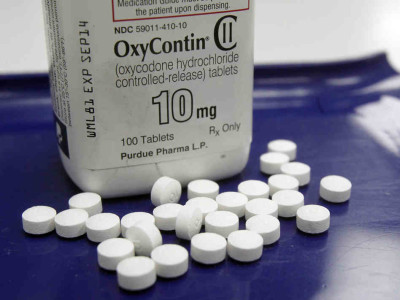March 15, 2014- By Steven E. Greer, MD
In 2009, Atul Gawande, MD, MPH and his large international team published in the New England Journal of Medicine (NEJM) an observational study that showed a significant reduction of death and “complications” after non-cardiac surgery. The World Health Organization (WHO) created the checklist used in the NEJM paper. After this non-randomized, non-controlled, observational study was published, entire nations adopted the surgical checklist system.
Now, in 2014, a population study drawing from Ontario surgical patient data, published in the NEJM, showed no significant benefit from the widespread adoption of the same WHO surgical safety checklist that Dr. Gawande popularized. This study was also observational, but it was stronger than the 2009 Gawande study in that it included the entire population within a region.
What went wrong? Read more »
 Anesthesiology, Biostatistics, Cardiac surgery, Critical care, General Surgery, Harvard affiliates, HHS, Infectious Disease, NEJM, NICE (UK), Op-Ed, Orthopedic surgery/sports, Plastic Surgery, Policy, Preventive Medicine, Spine surgery, Trauma, Vascular Surgery | apples49 |
Anesthesiology, Biostatistics, Cardiac surgery, Critical care, General Surgery, Harvard affiliates, HHS, Infectious Disease, NEJM, NICE (UK), Op-Ed, Orthopedic surgery/sports, Plastic Surgery, Policy, Preventive Medicine, Spine surgery, Trauma, Vascular Surgery | apples49 |  November 8, 2014 10:24 pm |
November 8, 2014 10:24 pm |  Comments (0)
Comments (0)
June 11, 2014- By Steven E. Greer, MD
When the recent Canadian studied published in the NEJM failed to show any benefit from the WHO surgical checklist championed by Atul Gawande, The Healthcare Channel pointed out that the original Gawande paper was possibly the problem. It was designed poorly, and collected data from non-U.S. countries with little oversight.
Now, in the current online NEJM, letters to the editor are coming in. One writer echoes our concerns about the original Gawande paper. Read more »
Interviewed by Steven E. Greer, MD
Paul Biddinger, MD, Medical Director for Emergency Preparedness, Massachusetts General Hospital and also Chairman of the Massachusetts Medical Society’s Committee on Preparedness, discusses how his hospital, and all of Boston, responded to the several hundred severely injured patients after the Boston terrorist bombs. Lesson from the battlefield helped saves lives, as did the fact that Boston possibly has more Level 1 trauma centers than any other city in the world.
 May 21, 2014- By Steven E. Greer, MD
May 21, 2014- By Steven E. Greer, MD
My mother is in her 70’s and in good health except for debilitating knee arthritis. After considerable research and second opinion (a bad spine surgeon misdiagnosed her knee pain as sciatica), she underwent elective total-knee replacement of her left knee with a Stryker Triathlon implant. Her surgeon was Dr. Vivek Sahai who operates out of Riverside Hospital, in Columbus, Ohio.
The surgery went well. Several days after surgery, she was eating and tolerating physical therapy, but was taking Oxycontin. I am too aware of the dangers of opioids, and that worried me. Read more »
Interviewed by Steven E. Greer, MD
Paul Biddinger, MD, Medical Director for Emergency Preparedness, Massachusetts General Hospital and also Chairman of the Massachusetts Medical Society’s Committee on Preparedness, discusses how his hospital prepares and trains for the event of chemical and nuclear (dirty bomb) attacks.
Also
March 6, 2014- By Steven E. Greer, MD
The Maryland State Assembly will begin debate on a bill to regulate “energy drinks”, such as those made by Monster Beverage, just as tobacco is regulated. Data from poison control centers directly link at least 20,000 emergency room visits to energy drink overdoses. From 2003 to 2011, ER visits caused by energy drinks quadrupled, according to Dr. Stacy Fisher who testified before the Maryland State Assembly. Read more »
July 11, 2012 By Peter Pronovost, MD PhD
I recently cared for Ms. K, an elderly black woman who had been sitting in the intensive care unit for more than a month. She was, frail, weak and intermittently delirious, with a hopeful smile. She had a big problem: She had undergone an esophagectomy at an outside hospital and suffered a horrible complication, leading her to be transferred to The Johns Hopkins Hospital. Ms. K had a large hole in her posterior trachea, far too large to directly fix, extending from her vocal cords to where her trachea splits into right and left bronchus. She had a trachea tube so she can breathe, and her esophagus was tied off high in her throat so oral secretions containing bacteria did not fall through the hole and infect her heart and lungs. It is unclear if she will survive, and the costs of her medical care will be in the millions.
Ms K’s complication is tragic—and largely preventable. For the type of surgery Read more »
By Steven Greer, MD
(Viewable in full screen 1080iHD)
Dr. Peter Pronovost, Professor of anesthesiology and critical care at the Johns Hopkins Hospital, discusses his paradigm changing medical checklist concept that has greatly reduced adverse events in hospitals. Starting with reducing central line infections dramatically, the concept was expanded to reducing ventilator pneumonias and then to reducing mortality in the operating room.
Dr. Pronovost was named one of Time Magazine’s “Most Influential People in the World” and is a recipient of the MacArthur Foundation “Genius” award. Dr. Steven Greer took a tour of his ICU and discussed his advances.
 AHRQ, Anesthesiology, CDC, CMS Medicare Medicaid, Critical care, General Surgery, Infectious Disease, Johns Hopkins, NEJM, NIH, Policy | apples49 |
AHRQ, Anesthesiology, CDC, CMS Medicare Medicaid, Critical care, General Surgery, Infectious Disease, Johns Hopkins, NEJM, NIH, Policy | apples49 |  January 11, 2012 1:27 am |
January 11, 2012 1:27 am |  Comments (0)
Comments (0)




